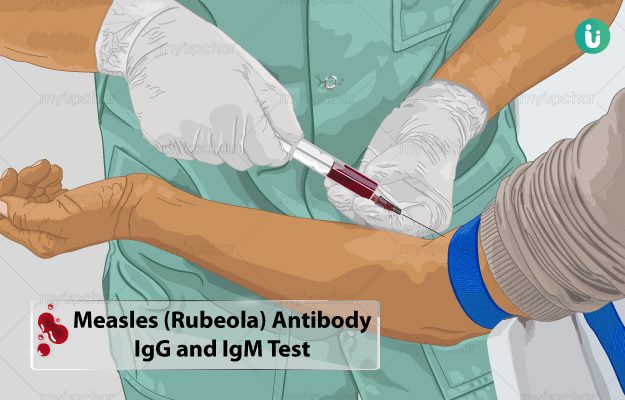What is Measles (Rubeola) Antibody IgG and IgM test?
Measles (rubeola) is a highly contagious airborne infection caused by the rubeola virus of the Paramyxoviridae family. The virus can stay alive for up to two hours outside the human body and generally spreads through sneezing, coughing or sharing items with the infected person such as using the same utensils.
A measles antibody test is a diagnostic test for measles that looks for the presence of anti-rubeola antibodies in your blood. Our body primarily produces two kinds of antibodies against the rubeola virus infection - immunoglobulin G (IgG) and immunoglobulin M (IgM).
IgM is the first type of antibody that shows up when the virus enters the body, whereas IgG is produced later and stays in the body for a longer time to provide protection. So, the presence of these antibodies also helps in differentiating an active infection from a past infection.






























